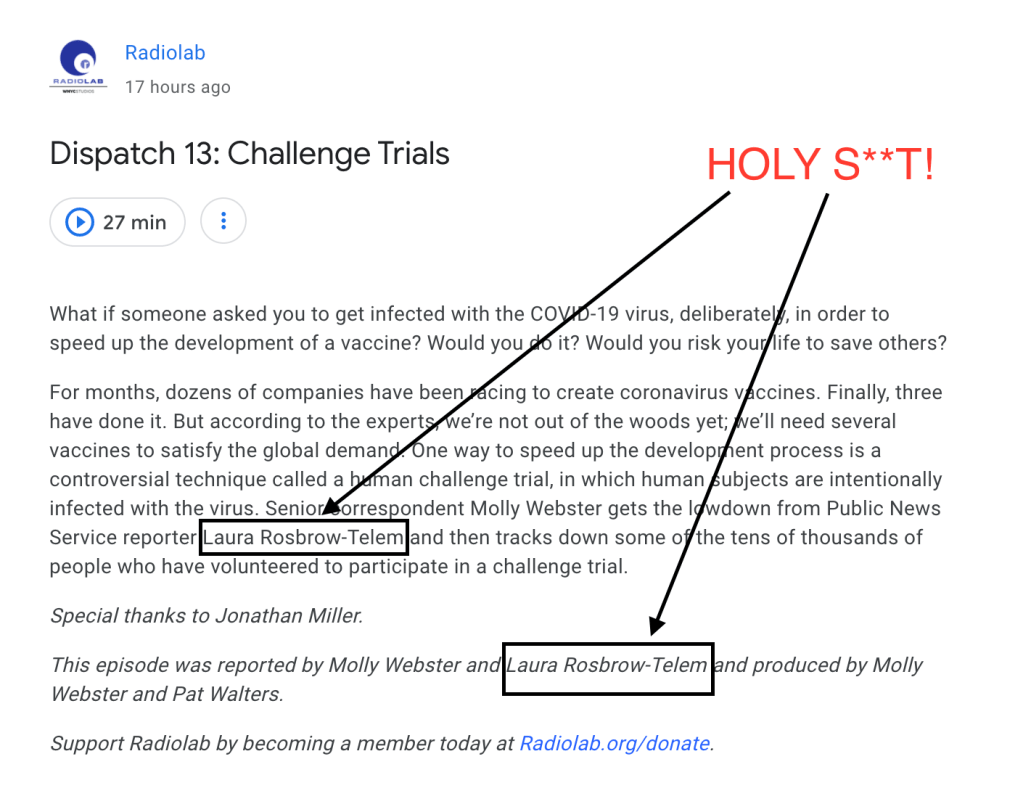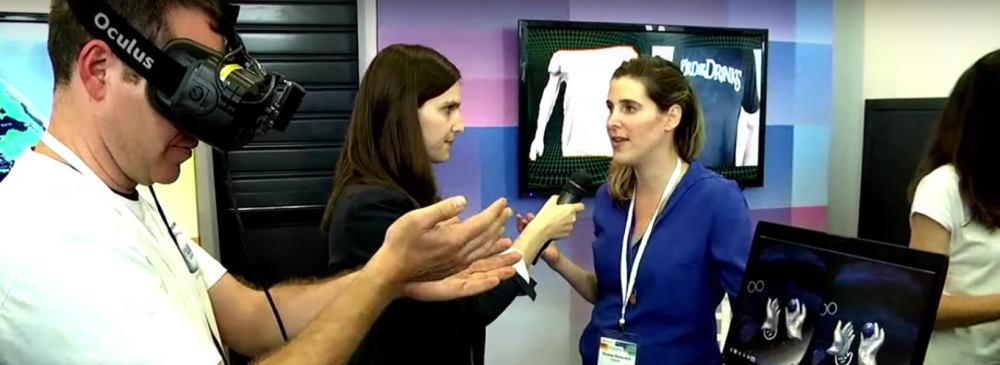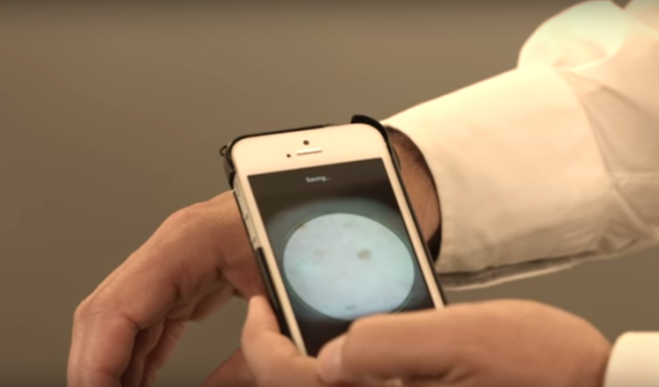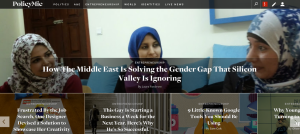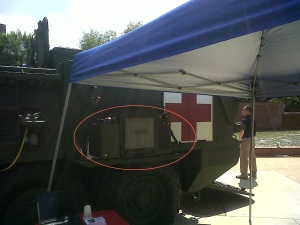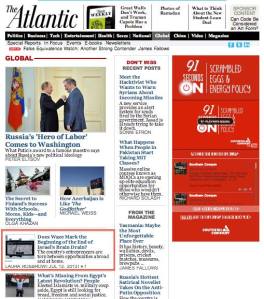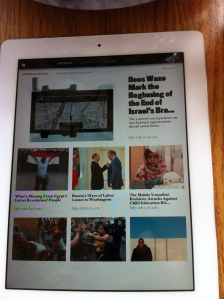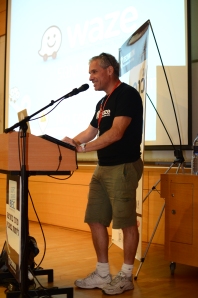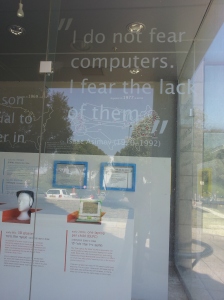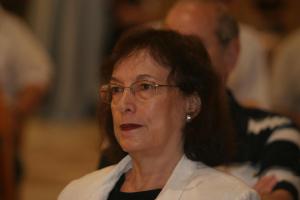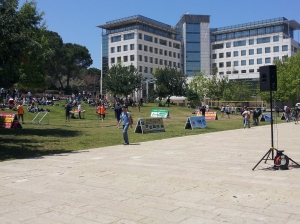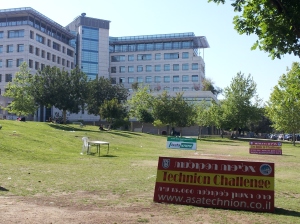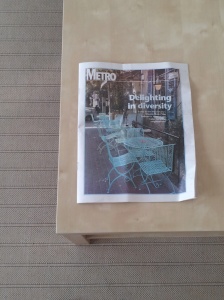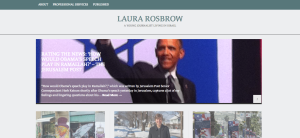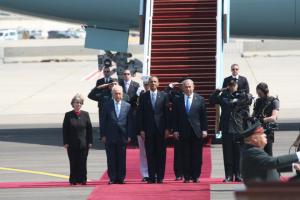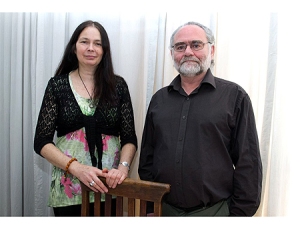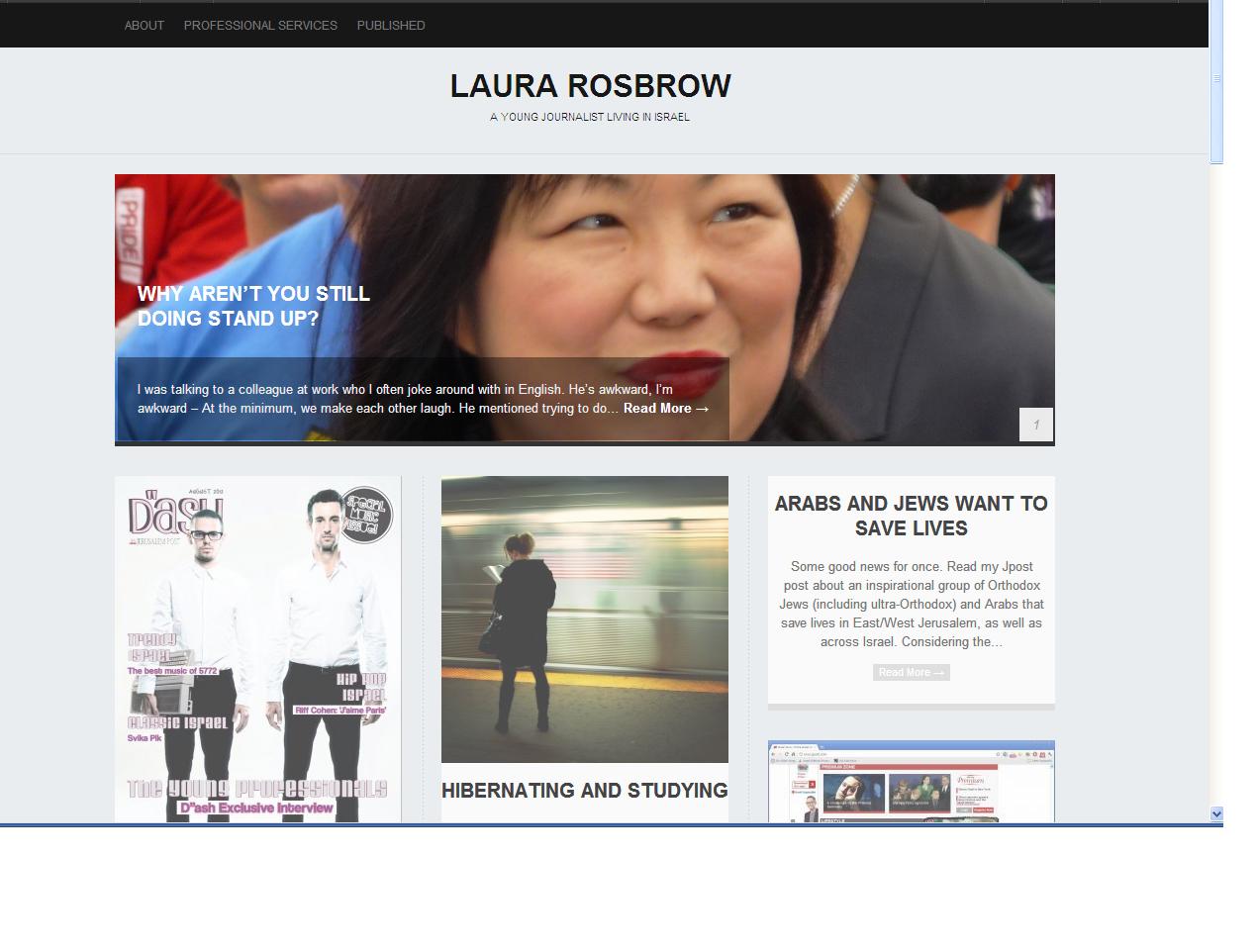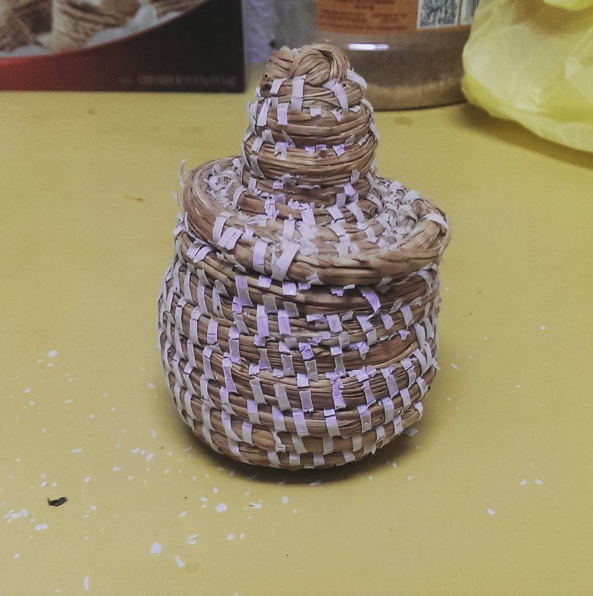My 50 voters from 50 states piece, where I asked 50 voters from 50 states to explain why they’re voting for either Obama or Romney, came out today on the front page of Walla! News! The Israeli title’s even better than my original one: it translates to “50 shades of America.” (Soon after, it was also republished in an English version on the Jerusalem Post.) It’s the largest reporting project I’ve done to date, and I’m happy to be publishing this after around a month of blood, sweat, and tears.
Walla! News, one of Israel’s leading online news sites, hired me to not only interview 50 voters from 50 states, 25 for Obama and 25 for Romney, they also wanted me to get a good quality photo from each voter. This was quite a task, and I learned a lot about reporting and political journalism in the process.

This is how the Israeli piece looks. You click on each photo to find out who they are voting for and why.
Because this article is being published in Hebrew (Amir Shiloh, Walla! News’ international desk editor, thankfully translated it. If I had done it, the article would probably be ready for publication in 2013.), I have pasted below my original version in English. Sadly I could not replicate the awesome graphics of the Walla! version of this article, but alas, a long-form blog platform will have to do. The voters are in alphabetical order according to state.
As always, let me know what you think. Additionally, I want to send my well wishes and support to everyone that’s been affected by Hurricane Sandy.
_ _ _ _ _ _ _
50 shades of America
The faces of the election.
By Laura Rosbrow
“It will not be easy, and it will be long.” This was what President Obama stated in his inaugural address in January 2009, predicting his first term would be difficult in the wake of the economic crash that he inherited. One voter interviewed here remembers this line. Many more lament the economy’s slow growth.
In this piece, where I profile 50 American voters from every state in the U.S., 25 for Obama and 25 for Romney, Romney voters’ overwhelmingly say that they want to replace Obama with a business savvy candidate that will exercise more fiscal restraint and create more jobs. They believe he can do this from his ability to balance the budget when he was the governor of Massachusetts without raising taxes, as well as his extensive private sector success.
Some of the Obama voters express support for Obama’s economic policies, and often credit the 2008 economic crash at the end of Bush’s presidency for the difficulties still lingering in the economy. However, Obama voters’ largely say they support the President for his social agenda. Most voters cite social issues such as fair pay for women, LGBTQ rights, a women’s right to contraception and abortion, and healthcare as the main reasons they are voting for Obama. Perhaps this is because Obama’s first term was more successful on this front in comparison to the economy.
On the other hand, Romney voters barely mention social issues, such as traditional marriage and pro-life policies, as reasons they are voting for Romney. Unlike other campaign seasons, the economy is the central issue for Republican voters. Additionally, Israel ranks high among Republican concerns.
Granted, this pool of voters is undoubtedly biased considering everyone knew this article was going to be published on an Israeli news site. That being said, it is interesting to see that of the voters that mention Israel as one of their reasons to support either candidate, seven voters support Romney and three support Obama. Delving a bit deeper, of the 10 voters that mention Israel, five are Jewish, three of whom are the Obama supporters. Not surprisingly, this demonstrates American Jews’ continued division over policies regarding Israel, whereas most non-Jewish voters that value Israel (mostly religious Christians) support the Republican party.
Each voter interviewed gives a unique, valuable perspective on the challenges facing the United States. I hope these voters give you a glimpse of what is at stake for Americans in the 2012 presidential election.

Name: Allana Pinkerton
State: Alabama
Age: 44
Occupation: Child Passenger Safety Instructor
Who are you voting for? Romney
Why? Obama is no friend of Israel. Obama’s life has been influenced by too many radical people who are anti-colonialist. He is slowly and secretly putting the U.S. on equal ground with the rest of the world which will enable other countries to increase Muslim extremists. If he has another four years in office, our country will be more vulnerable to attacks.
He is not a business man. Running a country takes business sense and experience. So, I am voting for Romney based on what I don’t like about Obama. It’s not that I love everything about Romney.

Name: Catkin Kilcher Burton (left)
State: Alaska
Age: 54
Occupation: Small business owner (Co-founder Eagles Enterprises, LLC) and Colonel (retired), United States Marine Corps
Who are you voting for? Romney
Why? Governor Romney brings to the table the traits and characteristics I believe are important in a leader. His core values are admirable and his educational attainment show me he has the intelligence to absorb the sheer volume of information he’ll have to deal with to make sound decisions in the areas of foreign policy, defense, and other legitimate federal roles. His broad spectrum of experience in business and government have convinced me he has the skill sets required to act as our Chief Executive and guide America back to prosperity and leadership.
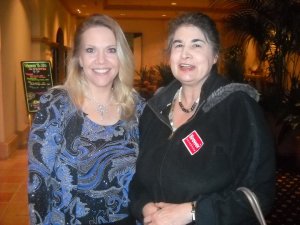
Name: Donna Alu (right)
State: Arizona
Age: 66
Occupation: RN in a neonatal intensive care unit
Who are you voting for: Romney
Why? I am voting for Mitt Romney/Paul Ryan because I believe in the Republican ideals of smaller, less intrusive government and I want a health care system that is patient focused; not one that is run by a huge federal bureaucracy.
I am also concerned about national security, in light of the chaos in the Middle East and the fact that ammunition used against our embassy in Libya was given to the Libyan rebels to be used against Gaddafi. I believe that the Obama administration has failed in this regard.

Name: Patricia Nation
State: Arkansas
Age: 51
Occupation: Attorney
Who are you voting for? Romney
Why? He shares my worldview. Romney believes in American exceptionalism. He promises to lower taxes, balance the budget, repeal Obamacare, and put Americans back to work by implementing free market based principles that will stimulate economic growth. Romney’s decision to visit Israel and meet with Benjamin Netanyahu symbolized that he will make Israel and its protection a top priority. The relationship between America and Israel is at the top of my list for casting my vote for Romney because I believe Romney will give Israel unwavering support and put all options on the table to support Netanyahu against imminent and future dangers.
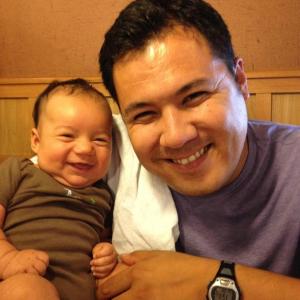
Name: Abraham Teran
State: California
Age: 32
Occupation: Self employed accountant
Who are you voting for? Obama
Why? I have strong faith in my president as people who voted for him should, and not change their minds as quickly as a coffee drink at Starbucks. Obama has invested money in a green direction that we should all follow! Obama is a humble and respected president, both here and abroad. His first address in office was clear. “It will not be easy, and it will be long.” He has fulfilled promises and promotes fair taxation where the middle class and poor benefit instead of the rich! Lastly, abortion: a woman has the right to do whatever she pleases with her body.

Name: Thomas McGuire
State: Colorado
Age: 35
Occupation: Auto body repair
Who are you voting for? Obama
Why? I am voting for Obama. Ready to move forward, for change, new ways of hope, for better jobs, community, more roads and buildings to be built, and the military.
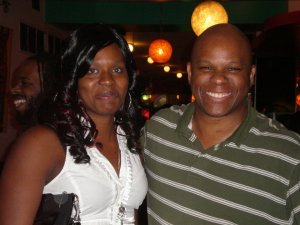
Name: Brian H. Dennis (right)
State: Connecticut
Age: 49
Occupation: Material analyst
Who are you voting for? Obama
Why? The Romney plan don’t add up and he is a flip flopping pandering liar. It takes more than four years to get us out of the mess that we were in. Obama didn’t get a fair deal in the spirit of cooperation from the Republicans when it came to his policies in helping move this country forward and at the end of the day, Romney has no real plan except to make us believe that policies and belief systems used in the past which got us in this mess will work. I trust Obama to do what’s right for 100% of all Americans!

Name: Barry Guerke
State: Delaware
Age: 64
Occupation: Attorney
Who are you voting for? Obama
Why? As a registered Republican, I fled the party due to the extreme right wing policies that started with Newt Gingrich and culminated with George W. Bush. Obama promised to restore America’s stature in the international community, which I think he has done. He inherited many problems, but I believe that things would have been much worse without the policies he put into effect. I like his inclusiveness versus the exclusiveness of current Republican policies. Health care reform and eliminating Osama bin Laden are major accomplishments. He has earned the right to another four years to complete his agenda.
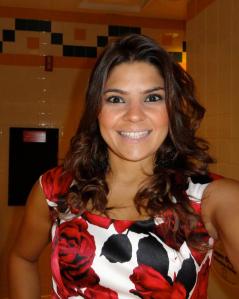
Name: Ingrid Linhares
State: Florida
Age: 30
Occupation: Hilton Hotels
Who are you voting for? Romney
Why? I was born in Brazil, but moved to the U.S. and gained citizenship in my teenage years. America is a great place where anyone can be successful if they work hard. I believe that Mitt Romney will preserve this great country and that under his leadership, the opportunities to become successful will grow. I just had my first child, and I want a bright future for him. Mitt Romney will provide a bright future for everyone because he will strengthen the economy and create jobs. As an immigrant, I know that hard work can help anyone achieve great things in America.
_ _ _
Name: M*nica Chau
State: Georgia
Age: 26
Occupation: Graduate student
Who are you voting for? Obama
Why? I’m liberal and my ideologies fall more in line with the Democrats. Particularly, it’s important to me to have a president who supports gay rights, abortion, and also, since I’m a stem cell researcher, I need a leader who supports this work.

Name: Juanita Brown Kawamoto
State: Hawai‘i
Age: 52
Occupation: Self employed
Who are you voting for in November? Obama
Why? I believe President Obama is focused on the issues affecting middle class America and the U.S. economy. He is also aware of the unique matters faced by our state. He has a good plan to lead ALL our peoples!

Name: Michael Smith (left)
State: Idaho
Age: 64
Occupation: Retired
Who are you voting for? Romney
Why? Obama’s appointment has been anti-business and his actions have pushed government controls into more and more areas. He has failed to deliver on too many of his 2008 promises (I voted for him in 2008). And I especially like Ryan as VP.

Name: Matt Weiner
State: Illinois
Age: 28
Occupation: Midwestern regional director of Moishe Hosue (nonprofit org)
Who are you voting for? Obama
Why? Universal health care, a woman’s right to decide how to treat her own body, and LGBTQ rights are issues that are important to me. On those fronts, not only do I side with President Obama, but Mitt Romney and Paul Ryan scare the crap out of me. I also think Obama is great on foreign policy, especially pertaining to Israel. As an American Jew with close ties to Israel, I think that Obama is the stronger candidate to keeping Israel a safe and democratic Jewish State, while actively and realistically seeking out a peaceful solution with the Palestinian people.

Name: Holly Stroup
State: Indiana
Age: 34
Occupation: Warehouse supervisor
Who are you voting for? Romney
Why? I normally do not vote and never have. I’ll be definitely voting this year to help get the right president in office and to get Obama OUT of office. He has taken all the religious beliefs from our school, saying that this is no longer a religious country, and has taken our prayer day away but allows the Muslims to have prayer day. He’s making it harder for people to find jobs but easier for some to collect the welfare.
I will be voting for Romney because he is more for all the people. He’s for getting jobs back so people can actually work again.

Name: Eben Seaman
Age: 31
State: Iowa
Occupation: Musician
Who are you voting for? Obama
Why? I am proud of Obama’s leadership at home and abroad. I thought the Iraq war was a mistake and he ended it. I know what Obama’s beliefs are, as opposed to his opponent whose message changes depending on his audience. Finally, my wife is a school music teacher and the President and his party support public educators, while Republicans run on platforms of cutting their jobs while their allies in right-wing media demonize teachers, blaming them for much of the U.S.’s budget woes. When I vote for Obama, I am making a vote that directly affects my family’s economic security.

Name: Dale Harwood
State: Kansas
Age: 44
Occupation: Museum Coordinator
Who are you voting for? Romney
Why? Because I believe that Mr. Obama has lied, and continues to lie to not only the American people, but also the rest of the world about many things. He promised hope and change ….. I see no hope. Conditions are worse now than before. He CANNOT be trusted, nor any of his lackeys in Congress.
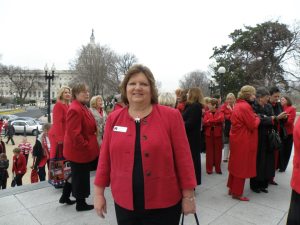
Name: Carol Rogers
State: Kentucky
Age: 56
Occupation: Homemaker and Volunteer
Who are you voting for? Romney
Why? The economy is in terrible shape with unprecedented government spending, a $16 trillion national debt, high unemployment, lack of jobs, and increased dependency on the government through entitlement programs. Mitt Romney is a smart businessman with clear ideas for improving our economy, in contrast to Obama who has never done any work in the private sector. Romney is for small government and lower taxes; Obama is for big government and higher taxes on many Americans. I have two children and two grandchildren; I want America to be strong again so that they and other young people may have a future of opportunity.
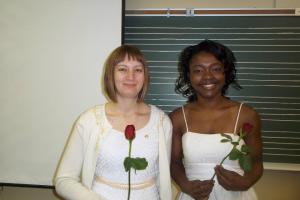
Name: Audrey Melissa Diket
State: Louisiana
Age: 23
Occupation: Student
Who are you voting for? Romney
Why? Mitt Romney has the necessary qualifications and experience in creating jobs and running a business, specifically in the task of budgeting SUCCESSFULLY; he lowered taxes multiple times, and managed to get rid of his state’s debt, and create a “rainy day fund.” Obama has not been successful with his budget, lowering the deficit, fixing the failing economy, or working with Republicans. Mitt Romney has been successful in working with Democrats when he was governor of a majority Democratic state, Massachusetts. Lastly, there are many other good things he did for people throughout his life that show his compassion for others.

Name: Jesse Connolly
State: Maine
Age: 34
Occupation: Works for a Member of Congress
Who are you voting for? Obama
Why? I am voting for President Obama this November because I believe there is a lot of work that still needs to be completed by the President and his team to turn our economy around. Furthermore I feel that President Obama is more concerned with the issues that face me and my family then his opponent.
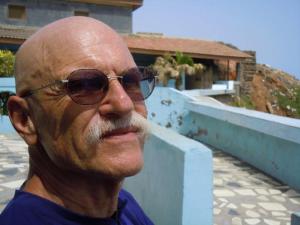
Name: Ed Levine
State: Maryland
Age: 66
Occupation: Retired
Who are you voting for? Obama
Why? President Obama and the Democratic Party’s platform is best suited for me, my family, and the U.S. Their platform is committed to 1) improving education and health services that will lead to increased employment, educational opportunities, and quality of life; 2) implementing a plan to address global instability through decisive military action that is cautious yet effective; and 3) enhancing our planet’s environmental health.
Mitt Romney and the Republican Party’s platform is committed to supporting major corporations by lowering their taxes and setting fewer regulations. This approach has proven to be ineffective, irresponsible, and has lead to economic disaster.
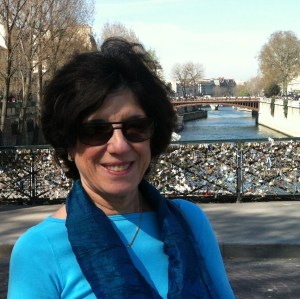
Name: Bonnie Margulies
State: Massachusetts
Age: 63
Occupation: Interior decorator and former middle school teacher
Who are you voting for? Obama
Why? I believe he is undoubtedly the best candidate because of his record in his first four years. I believe he really cares about all the people. He has a proven record in foreign policy. He has made his way to the top because of hard work and this life experience will allow him to perform even more effectively in his 2nd term.

Name: Amit Weitzer
State: Michigan
Age: 26
Occupation: Youth Environmental Education Program Coordinator
Who are you voting for? Obama
Why? I believe in a women’s right to define her future and have ownership over her body, and all people have the right to marry whomever they like. Legislators should stop legislating my body and definitions of love and family and get back to improving our safety nets. I believe in investing in green energy technology, in economic justice, and in desperately needed educational investments. I believe in comprehensive pathways to citizenship for people who have immigrated to our country and that the wealthy have a role in providing resources for those in need. A vote for Romney is a vote against everything I believe in.

Name: Jules Goldstein
State: Minnesota
Age: 65
Occupation: Retired Systems Analyst
Who are you voting for? Obama
Why? What President Obama has been able to do in the face of unrelenting partisan obstruction is amazing. Equal pay for equal work, repeal of Don’t Ask Don’t Tell, affordable health care, easing the burden of student loans, rescue of the auto industry, and reform of the financial industry are but a few accomplishments. He continues to pursue a foreign policy that promotes a strong Israel and fights nuclear proliferation.
All the while, Romney seems to be a walking shadow, full of sound and fury, signifying nothing.

Name: Nic Lott
State: Mississippi
Age: 32
Occupation: Founder of Mississippi Forward, state affiliate of the National Taxpayers Union
Who are you voting for? Romney
Why? This election is about the course of the U.S. and two very different paths. We can’t afford to continue President Obama’s record of high deficits and chronic unemployment. Governor Romney has a plan to create 12 million new jobs. He will provide real solutions for accessible and affordable healthcare where folks won’t lose their current coverage and health premiums won’t go up as they will under Obamacare by $2500 per family. A President Romney will stop the $716 billion dollar Obamacare cut to Medicare, strengthen our military, and prevent defense cuts as we keep America strong and get the middle class working again.

Name: Kailea Bogner
State: Missouri
Age: 19
Occupation: Student
Who are you voting for? Romney
Why? I see this country going in the wrong direction. I believe that the policies that Romney will bring forth will enable our government to balance the budget and reduce excessive spending. Romney can improve the country not only in the short term, but for the long term. The Romney-Ryan ticket will ensure that our Social Security will be available when the Americans who are working now retire. Romney believes in a strong national defense and will protect the traditional principles that I believe in. He will not be ashamed of this country, but will make this country powerful once more.

Name: Jessica Sena
State: Montana
Age: 26
Occupation: Campaign Staff for Rick Hill for Governor.
Who are you voting for? Romney
Why? Gov. Romney possesses the business savvy and leadership needed to collaborate effectively across the aisle, as well as around the world. Congressman Ryan has the knowledge and experience needed to parlay his work in Congress into meaningful reforms for our economy. The two have the proven to be leaders in and out of politics, and are just what America needs to restore prosperity and opportunity in this country through the policies of less government and greater freedom. They fulfill the ideals of the nostalgic “American Dream” we seem to have lost over the last four years.
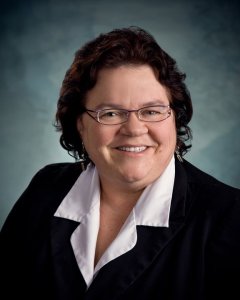
Name: Cyndi Lamm
State: Nebraska
Age: 54
Occupation: Attorney for eight years
Who are you voting for? Romney
Why? I am a wife, a mom, a grandma, and a small business owner. I am voting for Romney because I have concerns for my family and my business. Here in Nebraska, we have elected officials who largely exercise fiscal restraint. We have a balanced budget amendment and our unemployment rate is well below the national average. I believe that Mitt Romney and Paul Ryan will provide the same on a national scale, and that with their leadership, I can be confident that my children and grandchildren will have opportunity and that they will not be burdened by my generation’s debt.

Name: Dustin Ravizé
State: Nevada
Age: 23
Occupation: Computer Engineer
Who are you voting for? Obama
Why? I believe that social issues are at the forefront of what America is looking for. We now more than ever have been fighting hard for marriage equality, abortion rights, and a separation of church and state. I also believe Obama truly cares about the American people and has shown his care with his tax cuts to families and providing healthcare that has saved lives in need when no one would have offered anything. I believe this among many other solutions will bring the American people together, stimulate our social awareness and community, and build a better economy through new ideals.
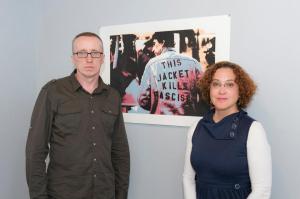
Name: Natacha Sochat (left)
State: New Hampshire
Age: 61
Occupation: Physician (retired) Artist/curator (ongoing)
Who are you voting for? Obama
Why? 1) Obama cares about everyone and has an economic plan that will benefit the entire U.S. population, not just the top 1%. 2) Obama was able to finally institute the beginning of health care reform, something that I never believed would be done in this country. As a retired physician, ‘Obamacare’ is a great accomplishment for our country. 3) Wall Street reforms were instituted along with other financial reforms including putting a stop to credit card companies’ financial abuses. 4) President Obama has been one of the best presidents to represent us to the world and have relationships with other nations.

Name: Sarah Luke
State: New Jersey
Age: 30
Occupation: Attorney
Who are you voting for? Obama
Why? I am voting for Barack Obama for several reasons. First, I think that the measures he took in the beginning of his presidency kept the country from experiencing a much steeper economic decline. Second, I support the Patient Protection and Affordable Care Act (a.k.a. Obamacare). Third, President Obama supports equal rights for same sex couples. And finally, President Obama will protect organizations like Planned Parenthood which provide women with access to quality reproductive care.
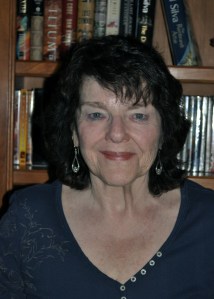
Name: Barbara Glazer
State: New Mexico
Age: 76
Occupation: Retired psychotherapist and college professor
Who are you voting for? Obama
Why? He feels a moral obligation toward equality, understands why women want equal pay for equal work, and knows that access to contraception and abortion is a woman’s choice. This election frightens me more than any other. I marched with my daughters in the civil rights movement. Those daughters are now in their 50s, and have their own children and grandchildren. I don’t want to see my great grand-children, three of whom are girls, lose the equality we worked so hard to attain. I will vote for President Obama and stay up all night until the results are in to see if I celebrate or sit shiva.

Name: Gabriella Rodriguez (middle)
State: New York
Age: 29
Occupation: Social Worker
Who are you voting for? Obama
Why? I think the country is moving in the right direction under his administration. He has shown a lot of strength, courage and determination. He has kept his original campaign promises as far as health care and bringing back the troops from Iraq. There was a lot hat he had to clean up after Bush left office and I think that with a second term he has a good chance at getting this country back on track economically.

Name: Steve Nicol
State: North Carolina
Age: 52
Occupation: Self Employed in Transportation
Who are you voting for? Romney
Why? I’ve witnessed a decline in my nation the likes of which I’ve never seen. I believe in limited government intrusion into both private and public sector arenas. As a business owner, I’m solidly against the Democratic philosophy of “regulation.” I truly believe President Obama has weakened our position both here and abroad. I don’t support many of his allegiances, I do not support his fiscal spending policies, and to be honest, as a judge of character, I do not believe he speaks for ALL Americans as a president should. Last, I support your nation’s continued efforts at self-direction and solidarity.

Name: Ken Callahan
State: North Dakota
Age: 50
Occupation: Energy Services Manager
Who are you voting for? Romney
Why? The economy is in horrible shape except for North Dakota. I believe a successful businessman knows how to balance a budget and will promote small businesses that will CREATE JOBS!!! We have a chance to become oil independent in North America and with Mitt Romney in office we have a better chance. Look at our president’s refusal to sign the Keystone pipeline project; he’s definitely not oil friendly. He can say we produced more oil in his administration than any other administration, but it’s not because of him; it’s because of the Bakken in North Dakota. It’s time for change.
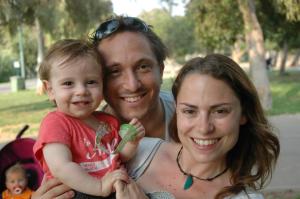
Name: Jamie Zimmer (right)
State: Ohio
Age: 30
Occupation: Journalist/Editor
Who are you voting for? Obama
Why? Obama upholds stances on a number of social issues close to my heart. He also implemented economy saving measures that stopped the U.S. from defaulting on its loans by raising the debt ceiling in order to prevent a worldwide depression. Romney seems to not only want to undo all of Obama’s work, I also believe he lacks any understanding of foreign policy and the fragility of international relations. I also believe, as a resident of Israel, that Romney would plunge Israel and the U.S. into a state of war with Iran that could take decades and millions of lives to resolve.
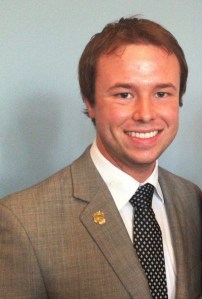
Name: Gabriel Crawford
State: Oklahoma
Age: 22
Occupation: Student/ Associate at Squires Resource Development (Fundraising firm)
Who are you voting for? Romney
Why? I am voting for Mitt Romney because of his fiscal conservatism and his desire to tackle the country’s current debt crisis. As a young man, the growing debt will be strapped on my back and my paycheck will have to reimburse these outlandish expenditures. Also, the United State’s current entitlement reforms are going bankrupt in this process, not guaranteeing me any benefits once I get older. I believe we must change the engine of the current entitlement structure (Social Security, Medicare, etc.) to maintain it for the current generation and preserve it for my generation. A Romney presidency will do just this.
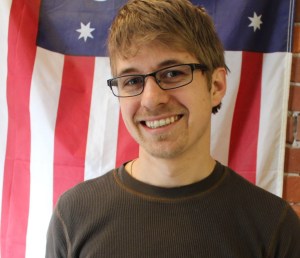
Name: Cole Merkel
State: Oregon
Age: 24
Occupation: Vendor Coordinator at Street Roots newspaper; Social services
Who are you voting for? Obama
Why? I work with people experiencing homelessness and poverty. I see first hand the trickle-down economic theories of tax cuts for the rich that will eventually benefit everyone through job creation only work to keep individuals in the upper class richer while subjugating the middle and lower class. This is what Mr. Romney is proposing. On the other hand, Obama’s economic policies create a more equitable future. Also, Mr. Obama’s support of same-sex marriage places him on the right side of history, which I am confident will be a harbinger of more freedoms for LGBTQ-identifying individuals, myself included, if he’s reelected.

Name: Rachel Robbins
State: Pennsylvania
Age: 29
Occupation: Arts/Nonprofit Administrator
Who are you voting for? Obama
Why? I believe in rights to contraception, healthcare, and abortion. Gay marriage needs to be legal. On the whole, it does not benefit the U.S. or the world for our leaders to be only interested in their own profit or in defending their traditions. I want an ethical leader who I trust and that is Barack Obama.

Name: Robert Davis
State: Rhode Island
Age: 46
Occupation: Nuclear medicine technologist
Who are you voting for? Obama
Why? I believe that the President has been, and will continue to be, acting in the best interest of all Americans. His plan for repairing our economic state makes sense and frankly, is the only one presented thus far by either party. His ideals match my own, equality for all regardless of sex, race, creed, and sexual preference. At this crucial moment, it isn’t practical to start with new, proven failed, policies.

Name: Lorilee Maurer
State: South Carolina
Age: 56
Occupation: Self-Employed
Who are you voting for? Mitt Romney
Why? My husband and I are small business owners. I feel that Romney better understands the economy and how to grow businesses. I think his approach to lowering the debt won’t be easy and may be a little uncomfortable, which makes sense. When you run up a debt that needs to be paid off, some things need to be cut, whether it’s my debt or our national debt! I appreciate his pro-family policies of traditional marriage and his anti-abortion stance. He’s not afraid to acknowledge God or his faith. I trust him and am proud to support him.
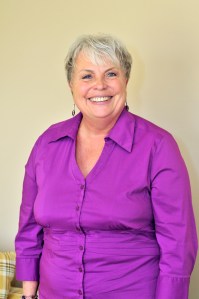
Name: Yvonne Rogalla
State: South Dakota
Age: 67
Occupation: Retired
Who are you voting for? Romney
Why? I believe that he can turn the economic situation around by lowering taxes on the small businesses and on the large companies so the large ones will come back to America, putting our people back to work. He also says he will open up resources we have here in the U.S. like oil, natural gas, and coal, again putting our people back to work and not depending on the Mideast and China. The greatest reason I am voting for him is because he says he is for Israel. Father God says that if we bless Israel, we will be blessed. America needs to be blessed.

Name: Daniel Garner (middle)
State: Tennessee
Age: 55
Occupation: Physician
Who are you voting for? Romney
Why? This is because I am concerned over the excessively liberal policies and decisions of the Obama administration, the poor record on Israel, and issues of the Federal deficit. Unlike many decisions, I am neutral on Obama’s record with the so-called “Obama-care,” health reform.

Name: Debbie Ferris
State: Texas
Age: 49
Occupation: Self Employed Technical/Grant Writer
Who are you voting for? Romney
Why? I support Mr. Romney because he has turned around several failing businesses and made them viable again. He was one of the most successful venture capitalists in the 80s and 90s and he was very successful at Bain Capital. Mr. Romney understands how private sector businesses work. As Governor of Massachusetts, he closed the deficit gap without raising taxes. I just think that Mr. Romney understands finances and the business world much more than President Obama and he will start the long process of helping the U.S. recover from the current recession.

Name: Jordan Hess
State: Utah
Age: 25
Occupation: Office Manager
Who are you voting for? Romney
Why? Mitt Romney encourages me to work hard and create my own success, rather than rely on the government to provide my happiness. My rights are given by God, not the government. America is a country where anyone can be successful if they work hard. Mitt Romney is also a family man with a beautiful wife and 5 great sons. I believe in marriage between a man and a woman, and Mitt Romney believes the same. I believe in a strong American military that stands with Israel. Mitt Romney believes the same. I believe in a free market economy; Mitt Romney believes the same.

Name: Rachael Cohen
State: Vermont
Age: 49
Occupation: Freelance editor, instructor at the University of Michigan New England Literature Program, adjunct professor of humanities at Colby-Sawyer College, laborer at Sunrise Farm, scholar for the Vermont Humanities Council Reading and Discussion Program, and dog-sitter.
Who are you voting for? Obama
Why? Although his first term was disappointing in some ways, especially compared to the enormously exciting promises he made during his first campaign, he came into office with nearly impossible financial and political challenges to overcome. I don’t agree with every decision he has made, but I believe that his economic policies are basically sound — and definitely sounder than Romney’s. We need the reforms of health care, education, and energy policy that he has been working toward.

Name: Jody Kemp
State: Virginia
Age: 57
Occupation: Church/Social services, serving women and children in situations of domestic violence
Who are you voting for? Romney
Why? I vote Republican because I am in favor of conservative solutions to America’s problems. Romney favors a strong defense budget and Obama does not. Romney opposes “Obamacare!” Mitt Romney supports an amendment to the U.S. Constitution to protect traditional marriage.Governor Romney will support our ally Israel. We have a long standing relationship and clear biblical mandate to stand with the state of Israel in every way. Finally, the United States needs Mitt Romney who understands economics, is a successful businessman/entrepreneur himself and who will work to create much needed jobs to get our economy moving again.

Name: Crystal Sweet
State: Washington
Age: 32
Occupation: Court Clerk
Who are you voting for? Obama
Why? I am voting for President Obama because he shares my values. I am particularly pleased with his stances on gay marriage and gays in the military. I also believe he will continue to protect a woman’s right to choose and he will continue to help fund much needed social services.

Name: Steven Starcher
State: West Virginia
Age: 36
Occupation: Pharmacist
Who are you voting for? Romney
Why? Barack Obama has steered this country to the brink of collapse with his policies and government takeover of the banking, auto, housing industries, and over regulation by the EPA on the oil, natural gas, and coal industry. These policies have caused 23 million Americans to be out of work and have led to six trillion dollars of additional deficit in just four years. This path for America is unsustainable. Finally, the foreign policy of this administration has been one of appeasement. In the eyes of your enemies, is it better to be feared or respected. I feel the current administration wants to be respected.

Name: Terri Krause
State: Wisconsin
Age: 50
Occupation: Administrative Assistant
Who are you voting for? Obama
Why? I believe that President Obama understands the difficulties and hardships that many Americans are experiencing. Mr. Romney has written off 47% of our population. I admire President Obama for standing up to corporate America by signing the Lilly Ledbetter Fair Pay Act. Paul Ryan voted against it. I support Obamacare. I supported the auto industry bailout – Mr. Romney said to let Detroit go bankrupt. That bailout saved thousands of jobs. Most importantly, I want President Obama to have the opportunity to appoint the next Supreme Court Justice and hopefully overturn Citizens United vs. Federal Election Commission.

Name: Clay Long
State: Wyoming
Age: 28
Occupation: In the oil industry
Who are you voting for? Romney
Why? Mitt consistently proves his ability to manage large, overloading crisis with poise and pride. He understands the American dream isn’t born or protected in the marble clad domes of DC but the brick and mortar of America’s homes.
